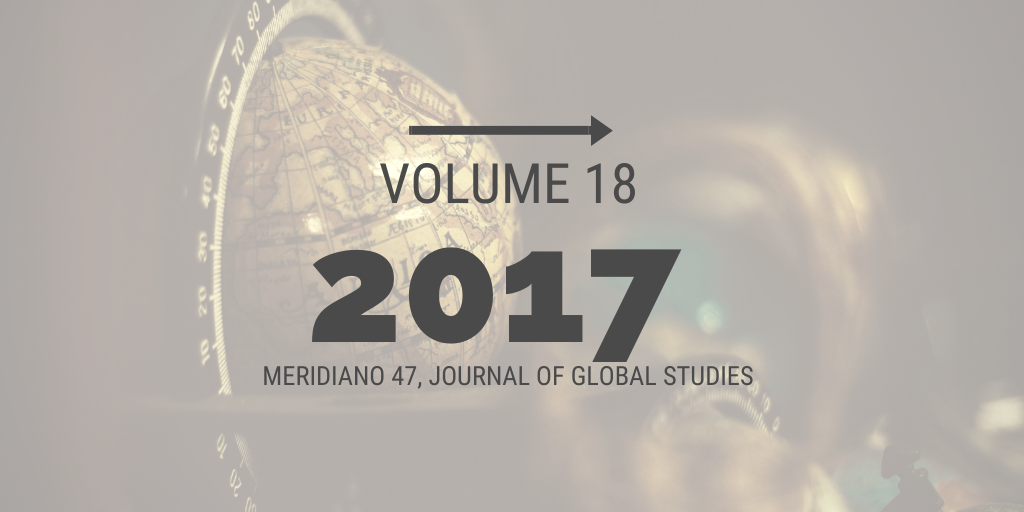Linking poverty and the environment: participatory community-based approaches, games of imperfect information and the Convention on Biological Diversity
abordagens comunitárias participativas, jogos de informação imperfeita e a Convenção sobre Diversidade Biológica
DOI:
https://doi.org/10.20889/M47e18001Keywords:
poverty and environment, Convention on Biological Diversity, participatory community-based approachesAbstract
This paper discusses the linkages between the agendas of poverty alleviation and of environmental protection through initiatives adopting participatory community-based approaches. These actions intend to strengthen and increase the effectiveness of policies focusing local and traditional populations that are in a situation of vulnerability. The challenges they face are presented here in the form of games with the purpose to show models explaining them. And finally, a participatory instrument, raised in the Convention on Biological Diversity and based on customary law, is brought to the reader.
Downloads
References
Bavikate, Kabir e Jonas, Harry (Ed.). Bio-cultural community protocols: a community approach to ensuring the integrity of environmental law and policy. Nairobi: United Nations Environment Program, 2009.
Bodenstein, Thilo e Kemmerling, Achim. “A Paradox of Redistribution in International Aid? The Determinants of Poverty-Oriented Development Assistance”. In World Development. Vol. 76, no. 3 (2015): pp. 359”“369.
Booker, Stephanie et. all. “Community Protocols: A Bottom Up Approach to Community Participation”. In 3rd UNITAR ”“ Yale Conference on Environmental Governance and Democracy. New Haven: Yale University, 2014.
Carvalho, Luciana Gonçalves. “Relações de trabalho nos balatais do Pará” in Horizontes antropológicos. Vol. 19 no. 39 (2013).
Castro, Carlos Potiara. “Seria a Amazônia uma colônia do Brasil? Ocidente interior, duplo vínculo e governança autônoma”. In Crítica e Sociedade: Revista de Cultura Política. Vol. 4, no. 2 (2014).
Castro, Carlos Potiara e Ferreira, Leila da Costa. “Pensamento norte-americano e processo de incorporação da temática ambiental nas ciências sociais”. In Revista de Estudos e Pesquisas sobre as Américas. Vol. 7, número 2, (2013).
Chao, Sophie. Forest people: numbers across the world. London: Forest People Programme, 2012.
Davies, Penny. “South-South Cooperation: Moving Towards a New Aid Dynamic” in Roy, Rathyn e Andrade, Melissa “South-South Cooperation: The Same Old Game or a New Paradigm?”. In Poverty in Focus. International Policy Centre for Inclusive Growth, Vol. 20 (2010).
Dongier, Philippe et all. “Community-Driven Development”, in: Klugman, Jeni. A sourcebook for poverty reduction strategies: core techniques and cross-cutting issues. Whasington: The World Bank, 2002.
Engel, Christoph. “Dictator Games: a meta study”. In Preprints of the Max Plank Institute for Research on Collective Goods. Bonn: Max Plank Institute (2007). Forest Peoples. Numbers across the world. London: UK, 2012.
Fiani, Ronaldo. Teoria dos jogos. São Paulo: Campus, 2009.
Fuchs, Andreas e Dreher, Axel. “Determinants of Donor Generosity: A Survey of the Aid Budget
Literature”. In, World Development Vol. 56, no. 2 (2014): pp. 172”“199.
Griffiths, Tom. Indigenous Peoples and the World Bank: experiences with participation. Morenton: Forest People Programme, 2005.
Hugé, Jean and Hens, Luc. “Sustainability assessment of Poverty Reduction: Strategy Papers”. In Impact Assessment and Project Appraisal, vol. 25, no. 4 (2007)
Jackson, Matthew. “A Brief Introduction to the Basics of Game Theory”. Mimeo, 2011. Available at: http://dx.doi.org/10.2139/ssrn.1968579 2011 (visitado em 07.10.2016).
Jehan, Selim and Umana, Alvaro. “The environment-poverty nexus”. In Development Policy Journal, March (2003): 53-70.
Kamau, Evanson and Winter, Gerd. “An introduction to the international ABS regime and a comment on its transposition by the E.U. Law”. In Environment and Development Journal, Vol. 9, no. 2 (2013).
Kamau, Evanson and Winter, Gerd. Genetic resources, traditional knowledge and the law. London: Earthscan, 2009.
Krantz, L. The sustainable livelihood approach to poverty reduction: An introduction. Stochholm, Swedish International Development Cooperation Agency, 2001.
Kretzmann, J. P. and McKnight, J. L. Building Communities From The Inside Out: A Path Toward Finding and Mobilizing a Community’s Assets. Chicago: ACTA Publications, 1993.
List, John (2007). “On the Interpretation of Giving in Dictator Games”. in Journal of Political Economy. Vol. 115, no. 3 (2007).
Makagon, Jael e Jonas, Harry. “Upholding human rights in conservation: who is responsible?”. In International Institute for Environment and Development Briefing, No. 46 (2014).
Mansuri, Ghazala e Rao, Vijayendra. Evaluating Community-Based and Community-Driven Development: a critical review of evidence. Washington: The World Bank Development Research Group, 2003.
MARSH, Robin. Working with Local Institutions to Support Sustainable Livelihoods. Rome: FAO, 2003.
Middell, Roger. “Effective Aid Requires New Structures”. In Ehrenpreis, Dag. Policy in Focus: Does Aid Work for the MDGs?, Vol. no21, (2007).
Narain, Urvashi et al. “Poverty and the Environment: Exploring the Relationship between Household Incomes, Private Assets and Natural Assets”. In Centre For Development Economics Working Paper. Vol. 134 (2005).
Olson, Mancur. The Logic of Collective Action: Public Goods and the Theory of Groups. Cambridge: Harvard University Press, 1971.
Organização das Nações Unidas. State of the world’s indigenous people. New York: Department of Economic and Social Affairs, 2009.
Ostrom, Elinor. “The Institutional Analysis and Development Framework and the Commons”. In Cornell Law Review, vol. 95, no 807 (2010).
Pacquement, François. “Building global policies: development assistance, a source of inspiration?” In Idées pour le débat. IDDRI ”“ Sciences Po (2010).
Putnam, Robert D. Social Capital: Measurement and Consequences”. In Isuma: Canadian Journal of Policy Research. No 2 (2001): 41-51.
Riddell, Roger. “Effective aid requires new structures”. In Poverty in focus, No. 32, (2007).
Tobin, Brendan. “Bridging the Nagoya compliance gap: the fundamental role of customary law in protection of indigenous peoples’ resources and knowledge rights”. Law, Environment and Development Journal. Vol. 9, no. 2 (2013).
Wong, Susan. What have been the impacts of World Bank Community-Driven Development Programs? CDD impact evaluation review and operational and research implications. Washington: The World Bank, 2012.



